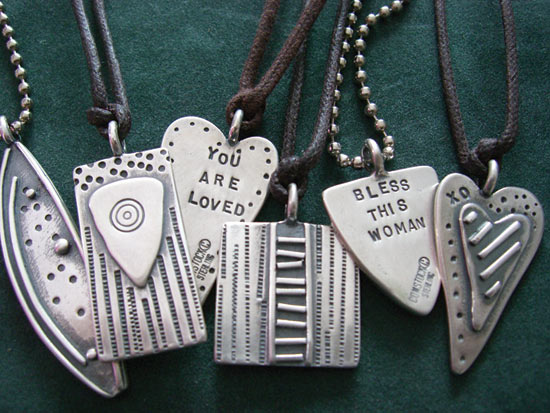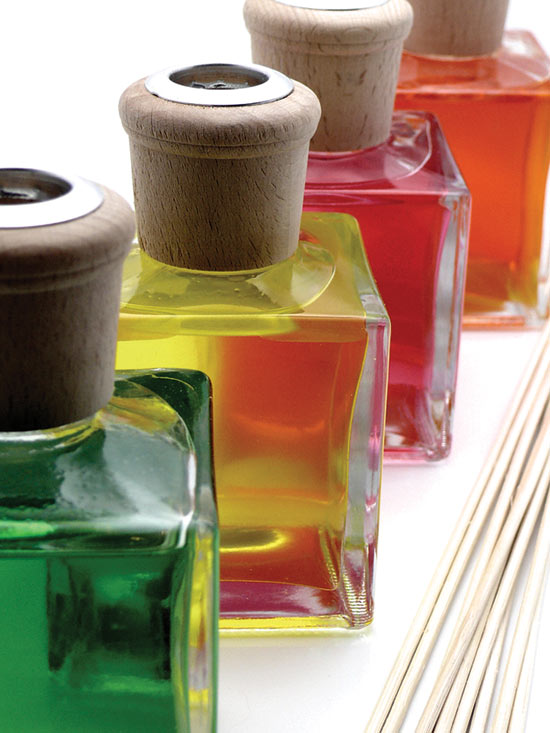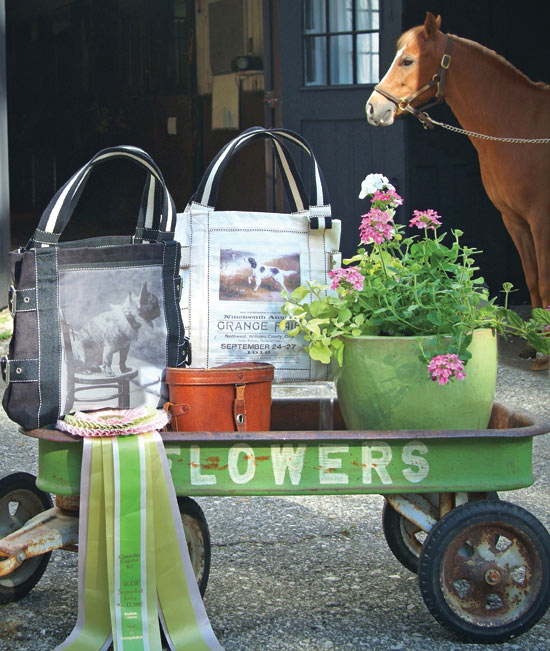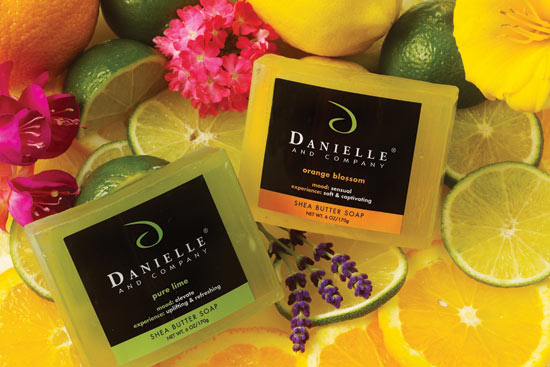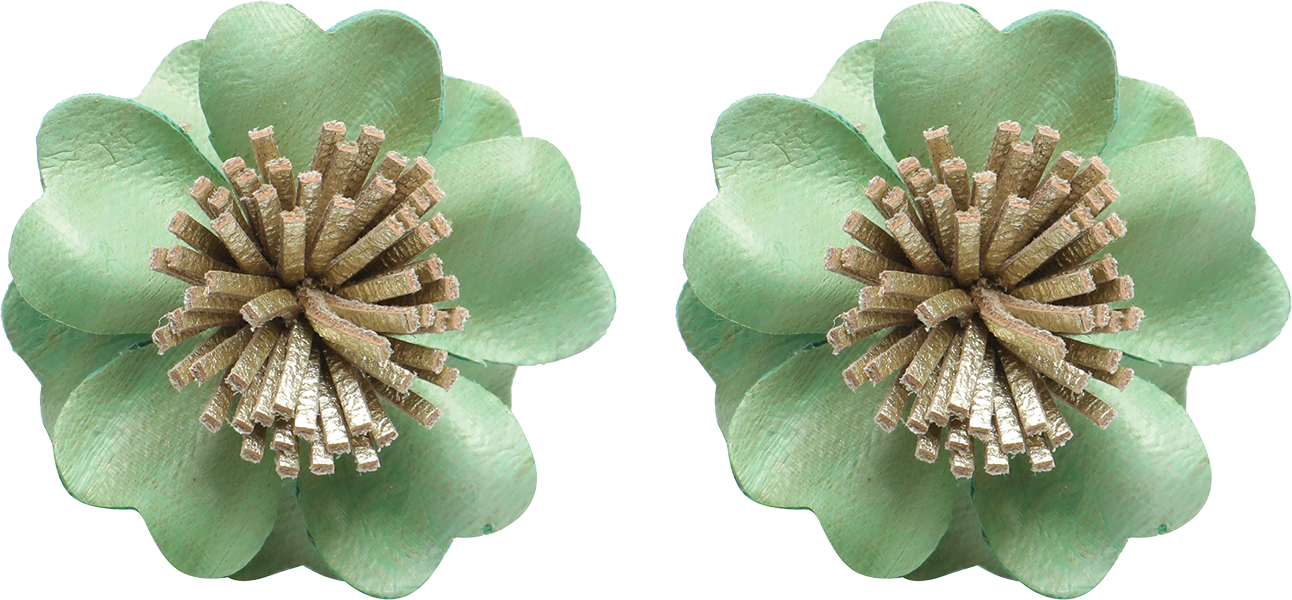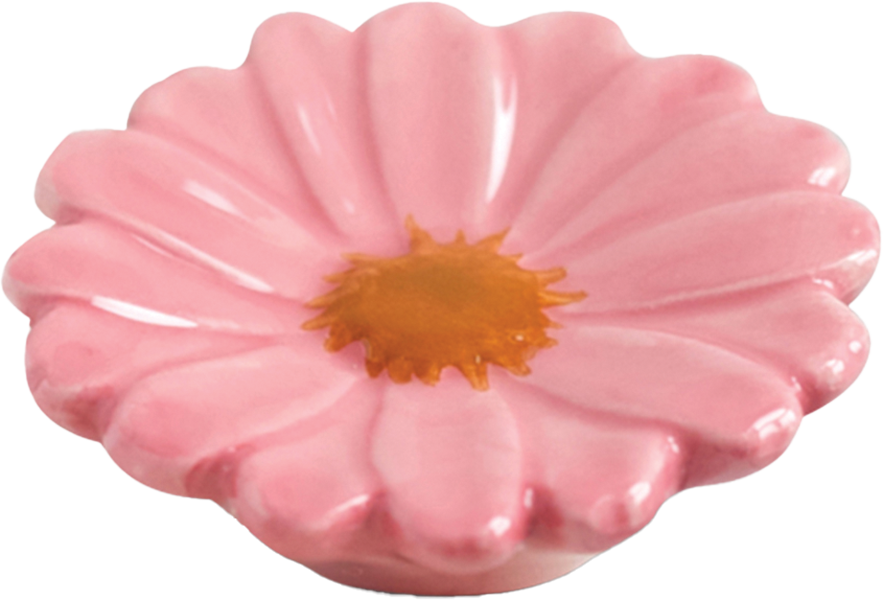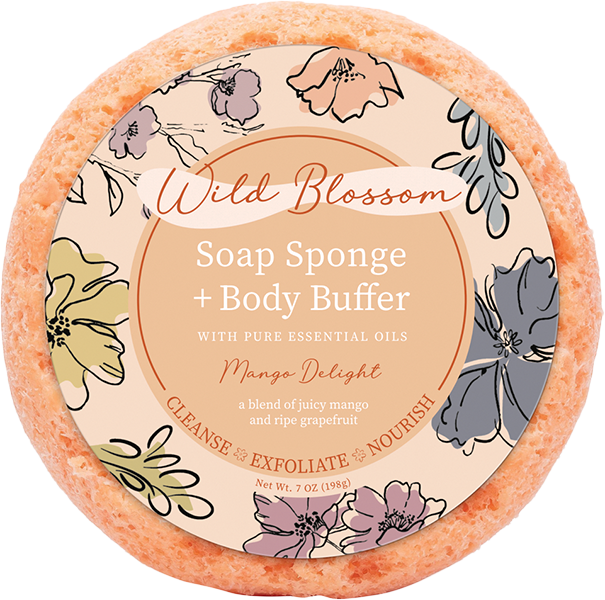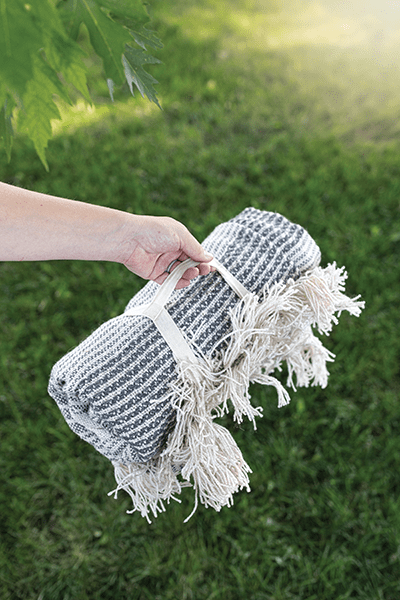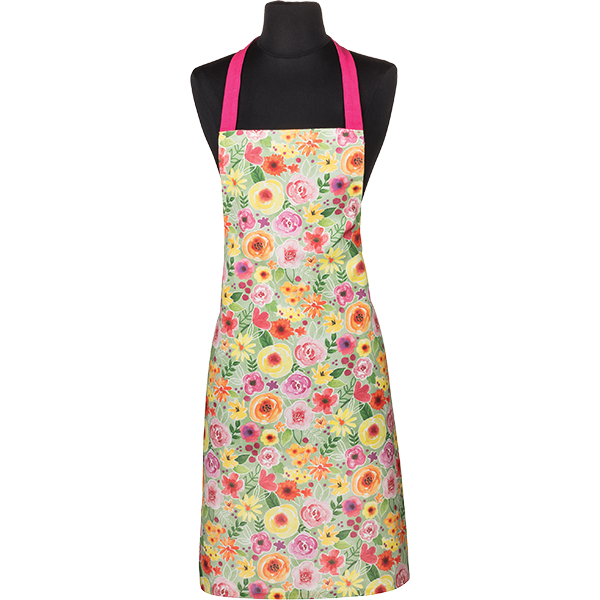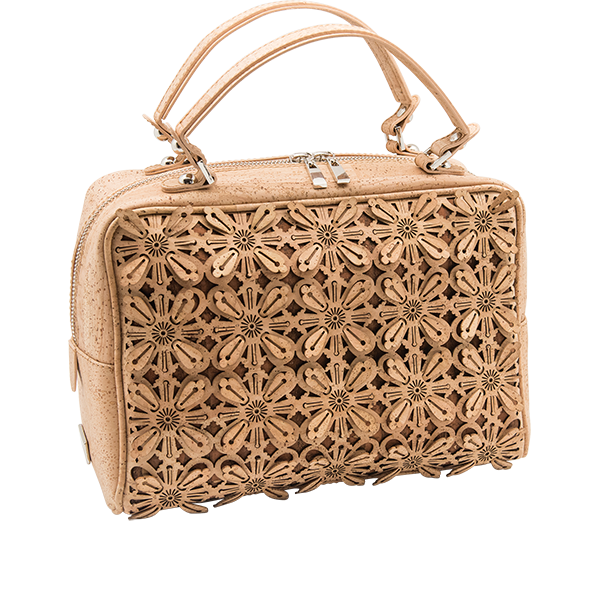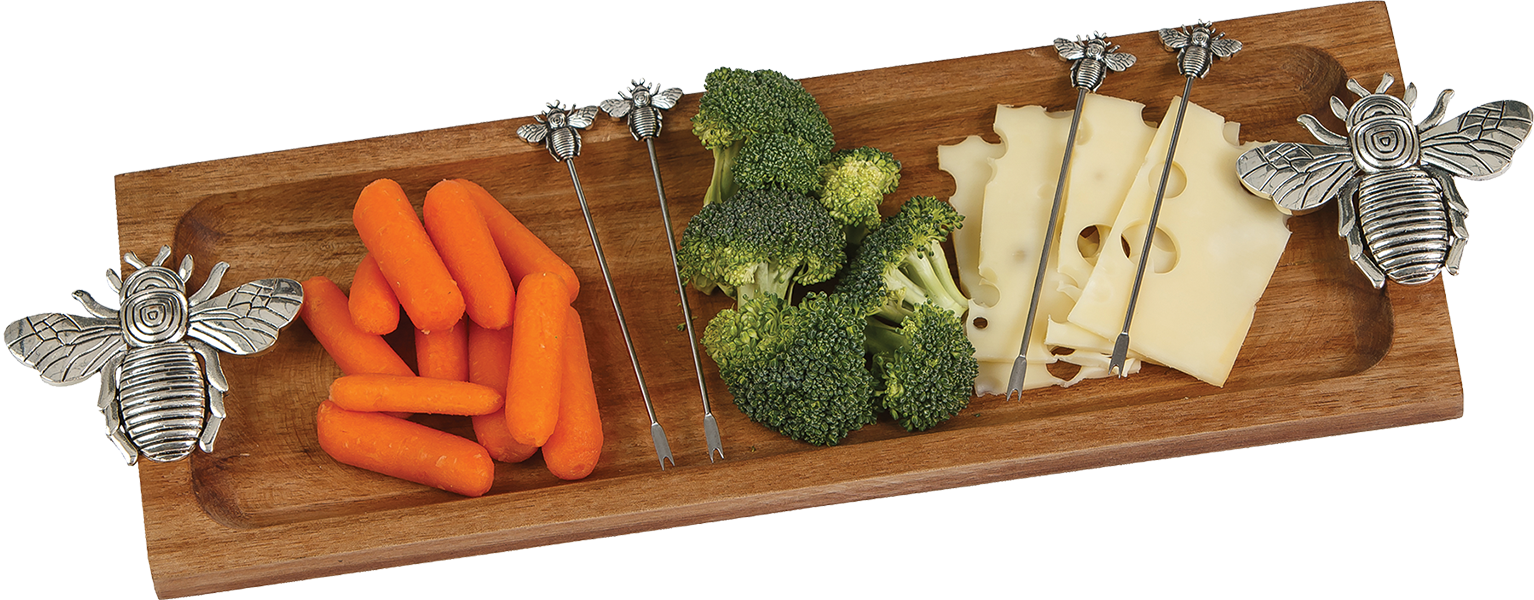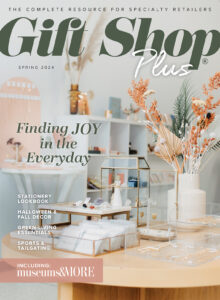All-American Sells
Preserving American jobs
The basic reason behind the “buying American-made” phenomenon is pretty simple: consumers shop their values.
Lynn Switanowski-Barrett, founder of Boston-based Creative Business Consulting Group, points out that the bottom line for most consumers is that they want to shop at places where they know that you, as a retailer, care about the same things they do. Increasingly, that means supporting the American economy and keeping American manufacturing jobs strong.
“[Your customers] want you as the store owner to make them feel good about shopping in your store by showing that you support local businesses and made in America. It helps them have a better overall feeling about your business, even if [the products are] only a small selection of what you carry,” Switanowski-Barrett adds.
That’s what wholesaler Catherine Mariasch of Mariasch Studios in Lynbrook, NY, has found. The company offers an assortment of gifts and accessories. Mariasch says her top-selling products include towels, pillows, tote bags, baby gifts, and wine accessories. “Our customers tell us they would rather support companies that offer made in America products,” she says. “Creating U.S. jobs is a wonderful feeling and we have much better control over the quality of the products we make,” Mariasch says.
Economy’s effects
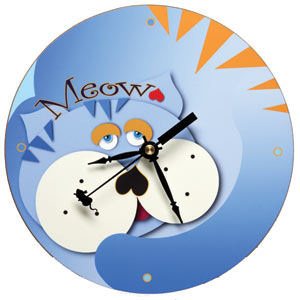 As a result of a challenging economy, retailers and vendors recognize that many consumers have changed their buying habits. Purchases tend to be more purposeful, and customers are trying to spend less. Traditionally, American-made products have a reputation as being more expensive than products manufactured overseas.
As a result of a challenging economy, retailers and vendors recognize that many consumers have changed their buying habits. Purchases tend to be more purposeful, and customers are trying to spend less. Traditionally, American-made products have a reputation as being more expensive than products manufactured overseas.
However, just because the price tag has a lower number doesn’t mean that consumers are getting the most bang for their buck. Value is important and is being prized. In other words, this is where “purposeful” purchasing comes into play.
“Products that are handmade in the United States and products that are mass produced and imported from China cannot be compared on price alone,” says Leslie Pozen, founder and designer of Ellu Bags. “A cheaper product is just that—cheaper. It often lacks quality, uniqueness, and design.” Ellu Bags is based in Chicago, and the company’s line of handbags and accessories are designed and handcrafted in the United States.
Shopping for value
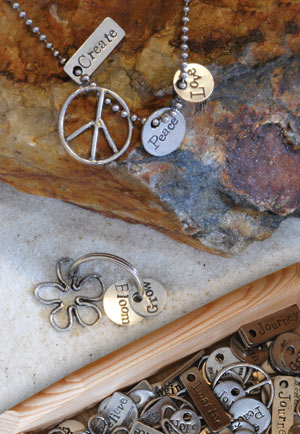 Sandy Comstack of Florence, OR, says that seeing ‘Made in America’ on a product gives the buyer confidence that they are getting quality. “Buyers expect a lot in this economy and don’t want to buy something that will break or fall apart as many people have experienced with foreign-made products. I have found that ‘you get what you pay for’ is really true,” Comstack says.
Sandy Comstack of Florence, OR, says that seeing ‘Made in America’ on a product gives the buyer confidence that they are getting quality. “Buyers expect a lot in this economy and don’t want to buy something that will break or fall apart as many people have experienced with foreign-made products. I have found that ‘you get what you pay for’ is really true,” Comstack says.
Toby and Max wholesales handmade sterling-silver jewelry pieces with messages, such as “Believe in Yourself,” “Be Brave,” and “Thankful” inscribed on them.
Value is also an important selling point in toys from wholesaler D and ME Handmade Wood Toys in Stevensville, MT. The company handcrafts wooden trains, trucks and construction vehicles, push toys, and doll beds. Owner Mary Hurley says that the company has seen “explosive growth” thanks to the lead paint scare in toys imported from China.
A popular seller at the company is a wooden toolbox and tools. Hurley says many of their customers come to them after buying a similar toy that was less expensive but poorly made—the company sells reasonably priced toys, Hurley says. Buying cheap, she adds, might save money initially, but not if the toy falls apart quickly. It’s a point that Hurley and other wholesalers emphasize: The value of their products is in the quality of their construction. A wooden toy made at D and ME
Handmade Wood Toys is expected to last for a generation or two, a price bargain in the long run.
Selling the red, white and blue
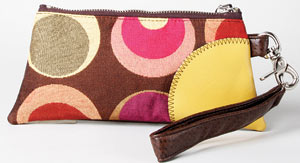 Catherine Mariasch encourages retailers to make “Made in America” an important selling point in their stores. Displaying signs and grouping products together in the store is one way to promote American-made goods. “We have found that customers will pick products that are made in the United States over products made overseas whenever possible,” she says.
Catherine Mariasch encourages retailers to make “Made in America” an important selling point in their stores. Displaying signs and grouping products together in the store is one way to promote American-made goods. “We have found that customers will pick products that are made in the United States over products made overseas whenever possible,” she says.
Pozen also believes that the idea of American-made reminds people of their connection to one another. “Even if the item isn’t handmade in your backyard, it’s exciting to know there might be a story behind the product.”
Advertising that story is the best way for retailers to market their American-made products, says Cinda Baxter of the 3/50 Project, based in Minneapolis. “It’s not enough to have a good product, but it also needs to have a good story,” she says. “Retailers need to breathe life into each piece. And the stores that do the best are the ones who tell the product’s story.”
The 3/50 Project encourages consumers to shop locally whenever possible, which can be a perfect combination for vendors and retailers.
Green values too
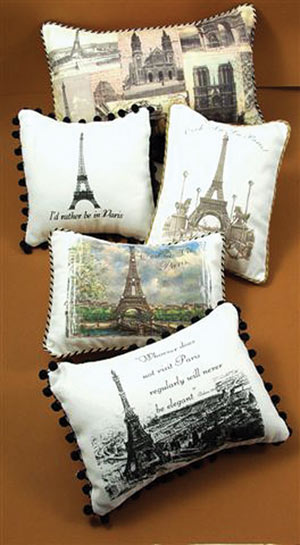 Include Danielson Designs, based in Trinidad, CO, among the companies that is seeing that being made in the USA is an attractive selling point for vendors and retailers. “It’s a topic on everybody’s mind today,” says Clay Vordenbaum, director of marketing. Danielson Designs creates wall décor made of wood.
Include Danielson Designs, based in Trinidad, CO, among the companies that is seeing that being made in the USA is an attractive selling point for vendors and retailers. “It’s a topic on everybody’s mind today,” says Clay Vordenbaum, director of marketing. Danielson Designs creates wall décor made of wood.
Vordenbaum notes that Danielson Designs also focuses on another issue that is of growing importance to Americans—being an eco-friendly and sustainable company. “Our products are not only made in the USA,” Vordenbaum says, “but they are also made from recycled wood products, so no trees fall due to the production of our goods. Striving to be a green company is crucial to our mission.”
Similarly, Cactus & Ivy meets the need of consumers interested in environmentally aware and humane products. The Saluda, S.C., company develops spa, bath and body products that are, as owner Lisa Rodgers says, cruelty-free and vegan-friendly.
The American dream
Rodgers has a unique view on why American-made products are so important to not only retail but also to the overall culture. “The American dream is to own your own business,” she says. “People are constantly looking for ways to make a business out of their hobby or skill. The American people aren’t known for sitting on their hands. Most stay productive and continue to perfect their craft until one day they have created a business.”
And that’s really the most vital piece of “Made in America,” says Switanowski-Barrett. Not only do Americans want to chase the American dream, they like to support the attempts of others.
“It all goes back to knowing what your customer wants and providing the right products for them,” she says. “They will pay for quality and for uniqueness.” When it’s made in the United States, that’s an attractive bonus.
Mouse over images below to view.

